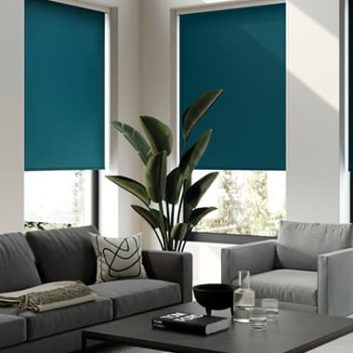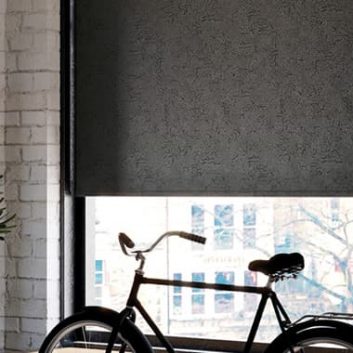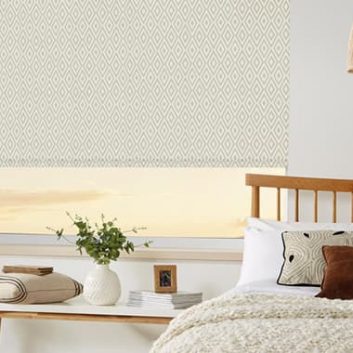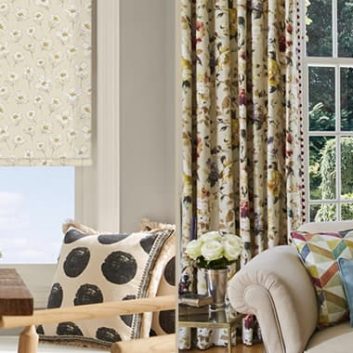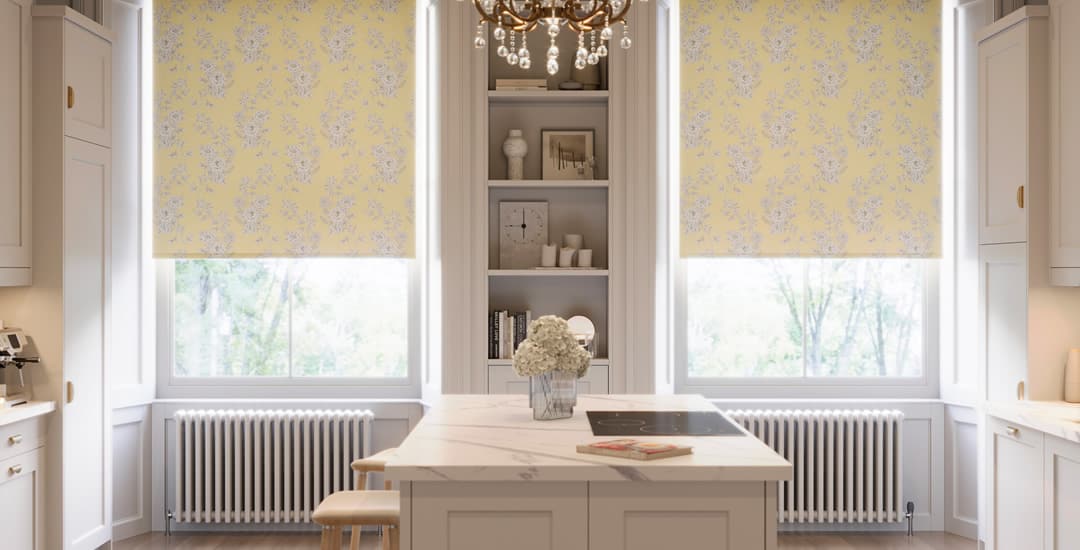
Should you have blinds in a kitchen? Yes, for both functional reasons and aesthetic ones. Blinds for kitchens ideally need to be waterproof, which also answers the question of “should you have blinds or curtains in your kitchen;” curtains are not waterproof and also, tend to get in the way and get messy quickly if they’re close to worktops and sinks.
This blog post will tell you what type of blinds are suitable for kitchens and why, as well as covering a few other related things to bear in mind or consider when it comes to choosing kitchen blinds.
Should you have blinds or curtains in your kitchen?
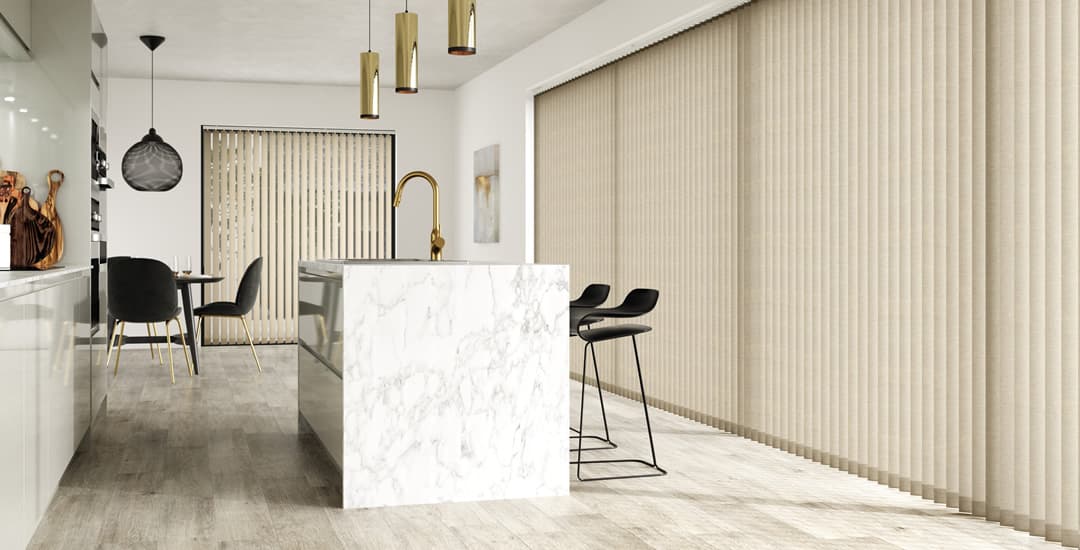
Starting at the top with the very first question most people get to; should you have blinds or curtains in your kitchen? As I mentioned above, for kitchens you really need to go with blinds, because curtains aren’t waterproof. This can soon become a problem if they get splashed, or are even simply exposed to condensation and steam from cooking.
Vapourised cooking fats will cling to the fabric of curtains too, which can soon result in your whole kitchen (or even most of your home if it’s small or you do a lot of frying) smelling of chip fat, and this may well also discolour or mark the curtain fabrics.
Many curtains can be machine washed, but by the same token, this isn’t ideal nor even always practical for large curtains, some aren’t washable at all, and maintaining the correct drape of curtains that have gone through a machine is almost impossible too.
Curtains might also become a fire hazard in the kitchen if they’re hung in close proximity to an oven or stove, particularly if they’re being moved by a breeze through the window behind them.
I’m certainly not saying that all types of blinds are suitable for kitchens, and some blinds should definitely be ruled out for many of the same reasons that curtains should be; but many blinds types (including some fabric options) are a good choice for kitchens, while curtains never are, for the various reasons I’ve summarised.
Should you have blinds in a kitchen if it’s not overlooked, or can you go without?
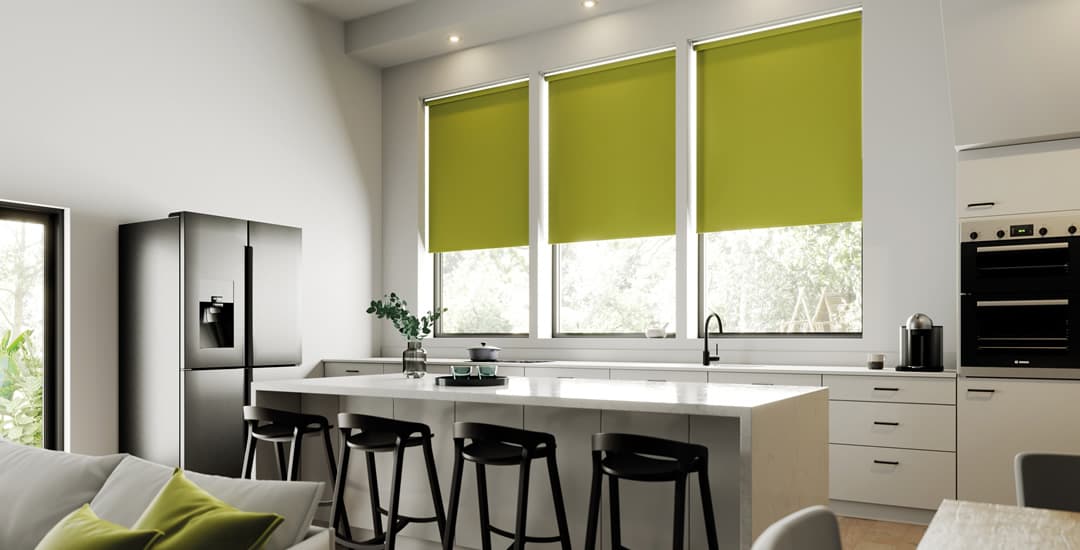
Should you have blinds in a kitchen if it’s not overlooked/they’re not needed for privacy? This is a somewhat less-common question, but one that comes up now and then nonetheless. We tend to think of using blinds and curtains to control our privacy as well as to keep out excess light or glare; but if your kitchen is already private and not overlooked by passers by or neighbours, should you have blinds in a kitchen for another reason?
Obviously, having window coverings isn’t a “need” per se, but if you’re thinking of leaving your kitchen windows bare simply because nobody can see in and/or the kitchen isn’t a room within which privacy is a concern for you, there are a couple of other things to think about too.
The first of these is that blinds are also used to block or filter light; and glare can be as much of an issue in the kitchen as it can in any other room of the home. If you happen to have a TV in the kitchen that you watch as you cook, or particularly if you like to cook along with cooking shows, this might be an immediate problem.
If you eat in the kitchen or even just like to sit at the kitchen table with a coffee and a book now and then, excess sun might once more be something you’d look to address; particularly if you read on a Kindle or another eBook reader, where screen glare may once more factor in.
Even in practical terms when it comes to cooking or preparing/serving food, keeping some or all of the light out might be desirable, to allow things to cool if required, or to slow down the potential rate of spoilage. For instance, if you make yourself a sandwich and leave it sitting on the worktop in direct light on a bright day, you are highly likely to find that the corners are curled and the bread becomes stale within just ten minutes or so!
Blinds also help to insulate your kitchen too, often to quite a marked degree depending on what type of blinds you choose. As most kitchens tend to have reasonably large or numerous windows, blinds might make quite a meaningful difference to your comfort levels in both summer and winter, and to your heating bills in particular over the colder months of the year.
Does a kitchen need blinds that are waterproof?
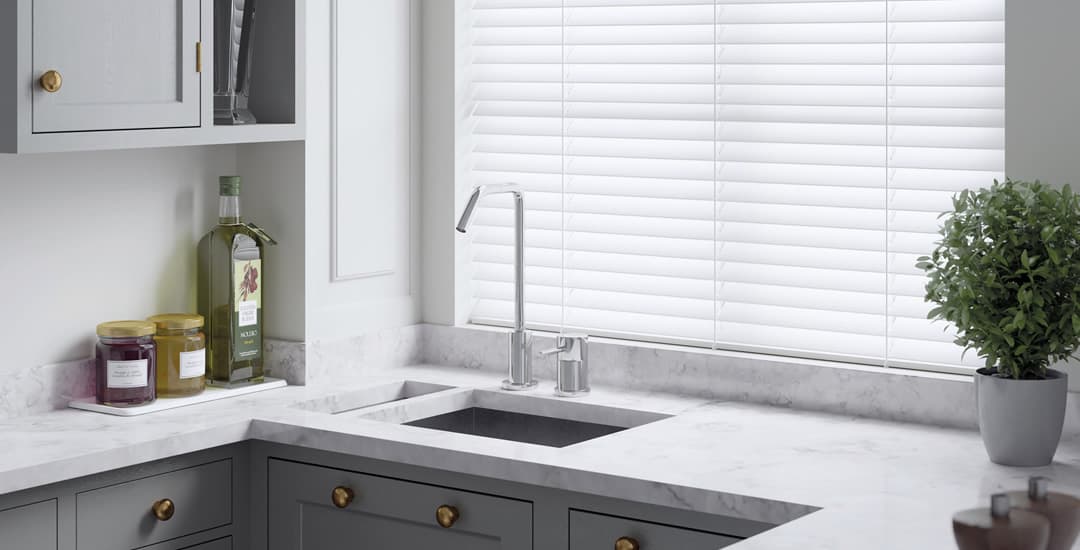
Does a kitchen need blinds that are waterproof? Yes, this is really important for 99% of kitchens, the 1% being those that aren’t ever really used, or that are huge and very well ventilated and with the windows and so, blinds, well away from sources of steam or water.
Kitchen blinds need to be waterproof for obvious reasons – they might get splashed and almost certainly will be exposed to steam – but for some less-obvious reasons as well. Ease of cleaning is one of these, and waterproof blinds of all types can simply be wiped clean, or cleaned with a detergent solution if something a bit more heavy duty is required.
In most rooms of the home, window blinds just need a light dusting every week or so, and nothing more; but exposure to moisture and cooking vapour in the kitchen means that kitchen blinds are more likely to get grubby and end up with the moisture or fat attracting other forms of dirt to stick to it too, hence the need for them to be easy to clean without causing damage to the blind.
This holds true in particular if the blinds are likely to get splashed with food, either when cooking or due to the need to feed younger children who haven’t quite got their hand-eye-mouth coordination sussed yet, or are just wilfully looking to ruin your day with projectile apple sauce…
What type of blinds are best in a kitchen?
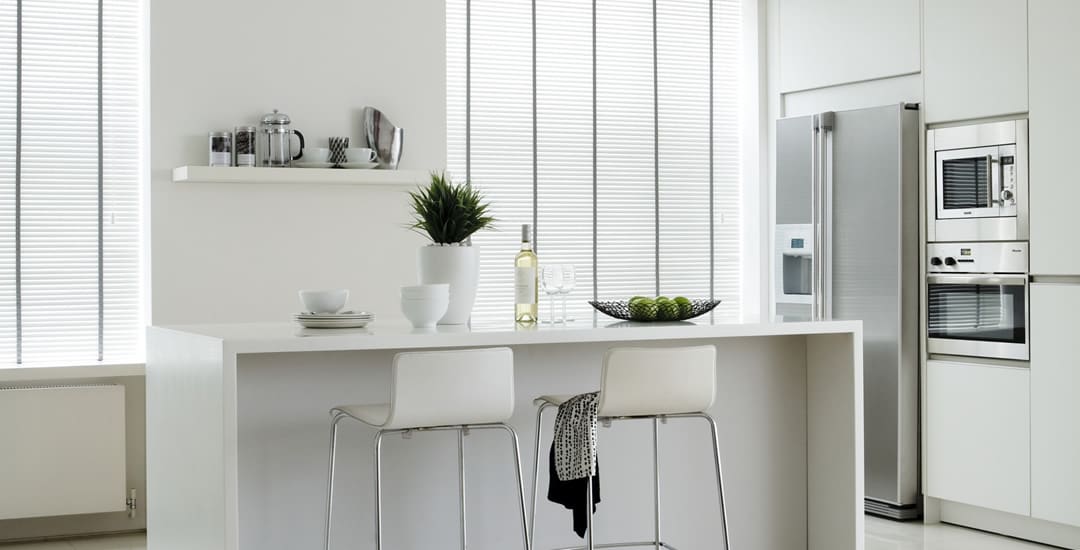
So overall, what type of blinds are best in a kitchen? Your 100% safe choices are the waterproof variants of roller blinds and vertical blinds respectively, and also, faux-wood blinds.
Venetian blinds (which are made of painted aluminium) are also a safe bet for the vast majority of kitchens, although in the interests of total accuracy I feel obliged to mention that their lift cords aren’t waterproof.
The types of blinds that aren’t generally suitable for kitchens are Roman blinds, day and night blinds, and wooden blinds (real wood) respectively. None of these are waterproof and all are reasonably costly, which is likely to prove doubly annoying if they reach an ignoble end due to being hung in an inappropriate usage environment.

